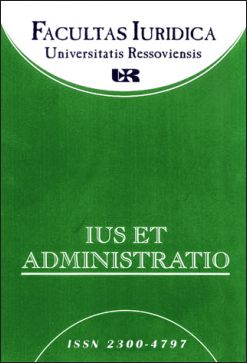Prosecutors’ Misconduct in America
Keywords:
plea bargaining, prosecutors, liability, discretion, misconduct, evidence, testimony, courts, justice, convictionAbstract
Prosecutors are given wide discretion about the way they conduct criminal cases. Some practices, which are however not always considered to be illegal, can rise doubt in the field of ethics. The defendant may argue then that the prosecution acted in an "unfair" manner. Prosecutorial misconduct weakens public trust and compromises the integrity of the legal system. It also undermines the ability of the courts “to seek justice”. The main reason of the misconduct is focus on conviction. In the pursuit of high conviction rate they fail to turn over factual evidence that is favorable to the defendant. The great threat to fair process in criminal cases comes from prosecutor hiding evidence, which can indicate innocence of the defendant. Misconduct is also evident, when prosecutors allow the use of perjured testimony. In such a case defendant's right to a fair trial is violated. Prosecutorial misconduct is so widespread because of the inadequacy of penalties applied in the event of unethical behavior. Most of the sanctions do not hold prosecutors personally accountable and their immunity protects them from any civil liability that might arise due to their work.
Downloads
Downloads
Published
How to Cite
Issue
Section
License
Copyright (c) 2014 Ius et Administratio

This work is licensed under a Creative Commons Attribution-NonCommercial-NoDerivatives 4.0 International License.

